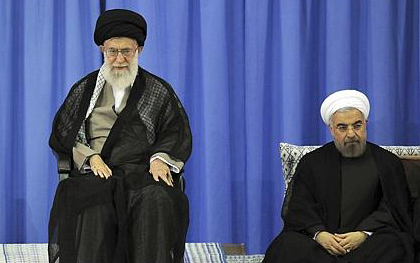IN THE MEDIA
Too many chances for abuse in Iran deal
January 21, 2014 | Tzvi Fleischer

TZVI FLEISCHER
Herald Sun – January 21, 2014
THE six-month interim nuclear deal supposedly reached between Iran and the US-led P5+1 powers – US, UK, France, Russia, China and Germany – in Geneva in late November finally came into effect yesterday.
It has taken two months of supposedly “technical talks” punctuated by repeated disagreements over interpretation of the so-called “Joint Plan of Action” agreed to in Geneva to reach this point.
But now the really hard part begins. If the six-month deal does not lead in the end to the kind of agreement that will finally end the years of intense international concern over Iran’s nuclear efforts, it will have been worse than useless. Yet there are very good reasons to doubt that it will.
While the Geneva deal is supposed to freeze Iran’s nuclear progress for six months while a final agreement is discussed, it actually does not offer a genuine “freeze” on nuclear work, but a mere slowdown on the most important elements.
Moreover, it tells Iran it’s all right to keep enriching uranium, even though six legally binding UN Security Council Resolutions say Iran must stop enrichment – which is not necessary for civilian nuclear power, but essential for nuclear weapons.
Meanwhile, Iran is already at the nuclear threshold, with at least four to five bombs worth of low-enriched uranium and 19,000 centrifuges to further enrich uranium to weapons grade when they’re ready. The deal says they get to keep all of that.
According to nuclear experts at the Institute for Science and International Security in Washington, Iran can build the core of a nuclear bomb in about a month simply by using what it has already. In addition, the inspection elements in the deal are too weak to ensure Iran will not cheat, as it has with past nuclear obligations, by building secret facilities. Furthermore, the deal promises nothing in terms of inspections related to Iran’s illegal work on nuclear warheads and missiles to put them on.
Finally, it greatly reduces the pressure on Iran by lifting some sanctions, removing the threat of additional sanctions and by effectively removing the military option from the table.
There are already strong signs the Iranian economy, badly affected by sanctions, is starting to rebound strongly, while reports say international businesses are flocking to Tehran to try to broker deals.
It will be difficult and time-consuming to restore the full regime of tough sanctions if Iran reneges or cheats. Meanwhile, the country’s chief nuclear negotiator recently said that Iran’s concessions under the deal were reversible “in less than one day”.
It’s worth remembering what’s so dangerous about Iran acquiring nuclear weapons.
A nuclear Iran would likely cause the Sunni powers such as Saudi Arabia, Turkey and Egypt to seek their own nuclear weapons to offset Iran’s advantage, sparking an arms race in the world’s most unstable region (The BBC recently reported Saudi Arabia has already arranged to obtain nuclear bombs from Pakistan).
Iran is a revolutionary expansionist regime, driven by its radical shi’ite ideology and Persian nationalism to seek to dominate its neighbours. Its location means the obvious goal would be to seek to control the Persian Gulf and Caspian Basin regions, which hold most of the world’s oil reserves.
Furthermore, its leaders express a desire to destroy Israel, with Iranian Supreme Leader Ayatollah Ali Khamenei recently reaffirming that by calling the Jewish state “a rabid dog”.
Finally, nuclear weapons would embolden a regime already the world’s most lethal state sponsor of terrorism.
Given all that, what the world needs is nuclear “rollback” – Iran’s centrifuges, enriched uranium stockpiles and other infrastructure must be drastically reduced to the point where Iran cannot quickly make nuclear weapons whenever Tehran decides the time is right.
To achieve that, the international community is going to have to be extraordinarily focused over the six months of the interim deal. It must be made very clear to Iran that the status quo is not acceptable. Sanctions outside those reduced in the agreement must be rigidly enforced and it must be very clear to Iran that more sanctions will follow if a final agreement is not reached. And the military option must be kept on the table as a last resort.
Tough sanctions and credible threats brought the Iranians to the table. The same tools can bring about a final deal that will end the Iranian nuclear crisis once and for all, if the international community holds its nerve.
Dr Tzvi Fleischer is a senior Middle East analyst at the Australia/Israel & Jewish Affairs Council and holds a PhD in International Politics from Monash University
Tags: International Security





